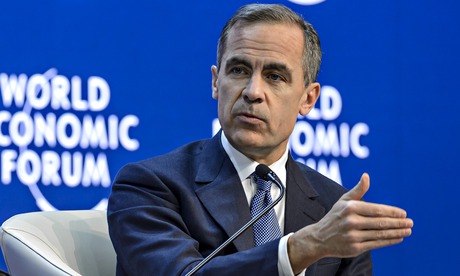
Mark Carney gave strong backing to the European Central Bank’s radical stimulus but warned it could disrupt the financial markets.
The governor of the Bank of England told the last day of the Davos meeting of the World Economic Forum that he could receive daily risk positions of the banks to monitor any stresses in the system as he admitted persistently low interest rate environments could cause investors to take risks.
The move by the European Central Bank to buy €60bn of government bonds and corporate debt announced on Thursday dominated much of the discussing during the four-day meeting in the alpine ski resort and comes after central banks in the US and the UK have also taken similar steps to stimulate economies.
“In an environment of low interest rates and quantative easing there can be excessive risk-taking,” he said. Investors could make the false assumption that the Bank of England was already to step in causing them to buy riskier assets than they might otherwise have done.
Carney admitted that savers could lose out from low interest rates but said that stimulus was necessary to avoid long-term unemployment. “Monetary policy always has distribution effects,” he said. “One of the biggest distributional issues is the risk that people who are unemployed for a long time become detached from the labour market and lose their skills, in the UK we have created 600,000 jobs in the last year and wages are starting to pick up. We are winning that race against unemployment.”
He is also facing questions about the low rate of inflation in the UK, which has fallen below the 2% target rate set by the government, sliding to 0.5% in December.
Carney said prices would start to rise in the next two years to bring the inflation rate back to target.
“We have a very low inflation environment right now, largely due to oil prices,” he said.
“We have the responsibility, we have the means and the will to do it and return inflation back to target within the two year horizon so people can rely on that.”

